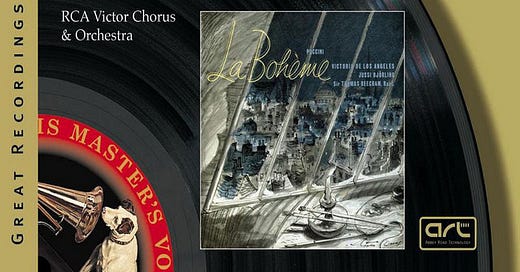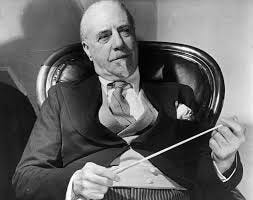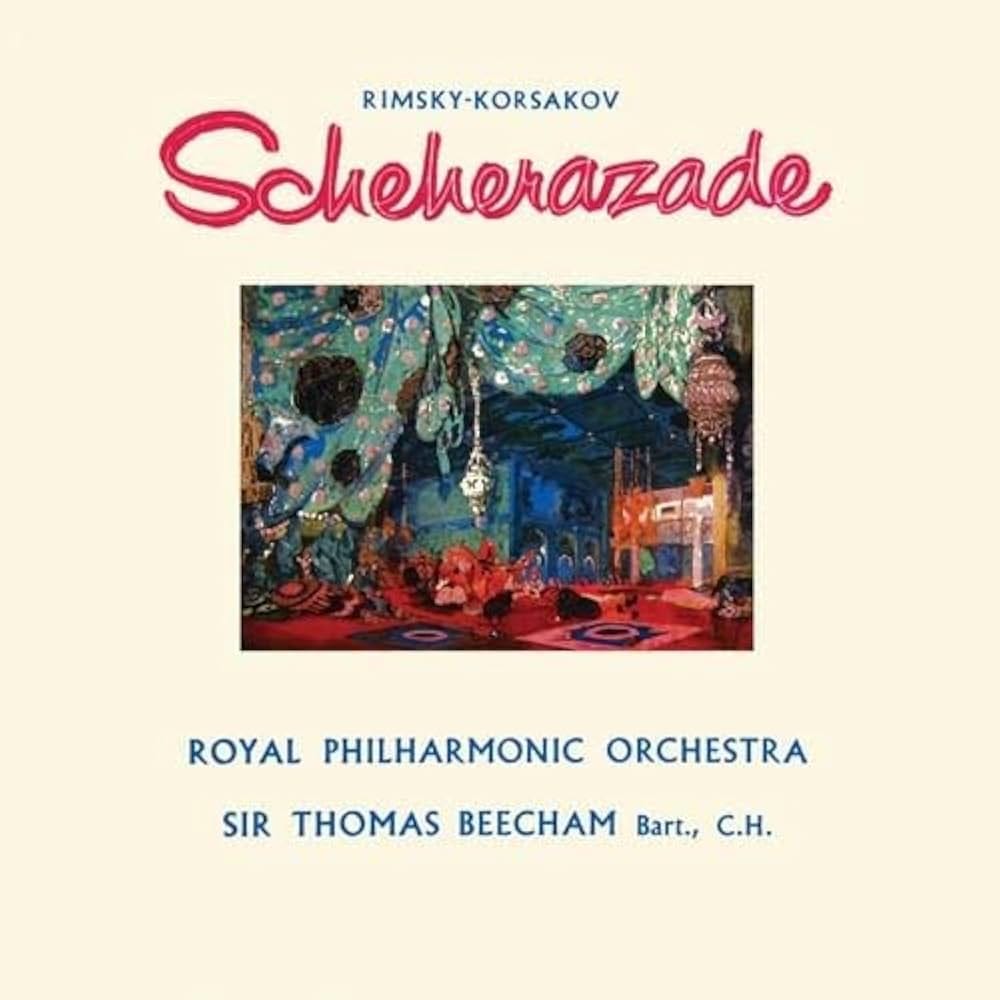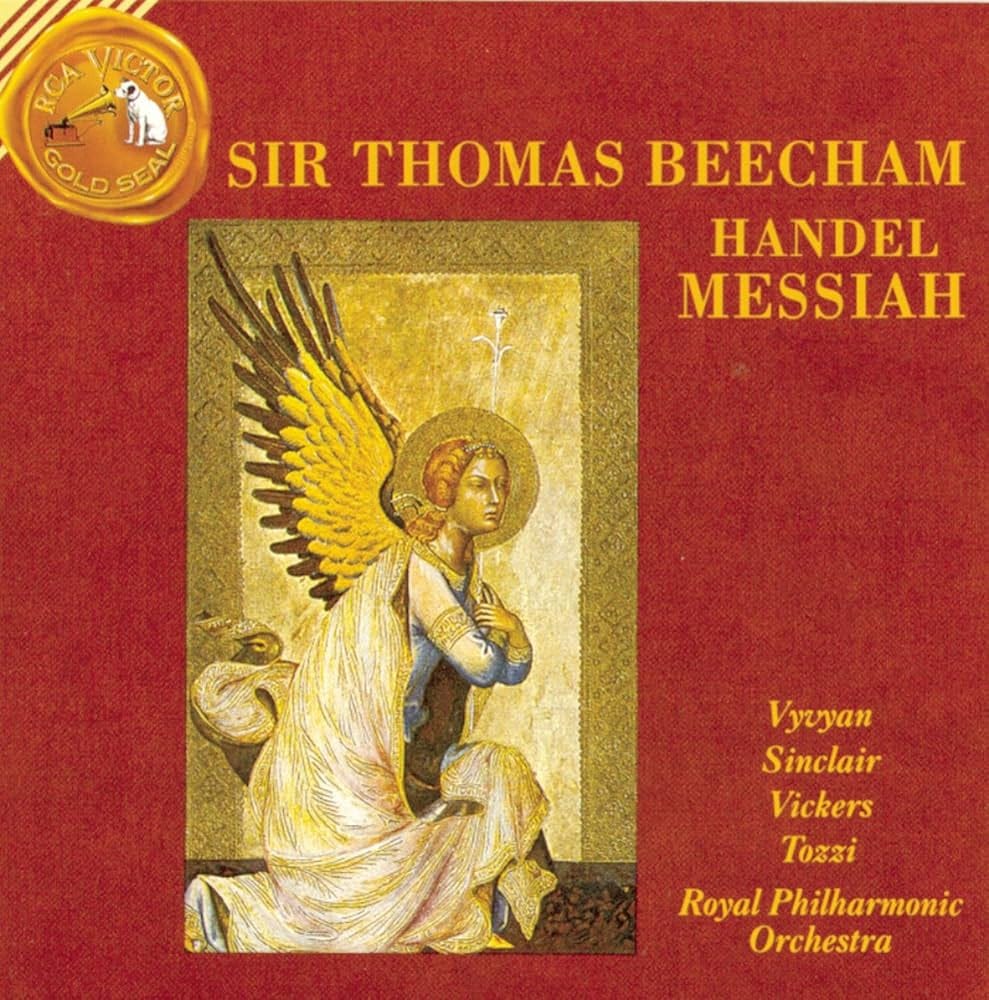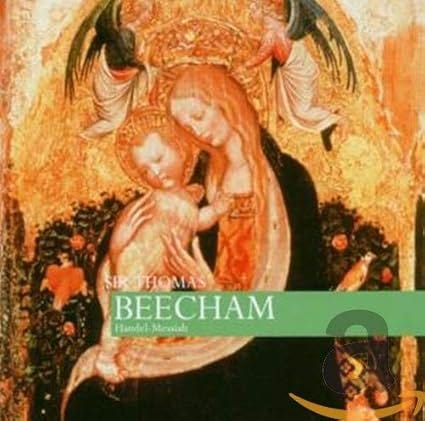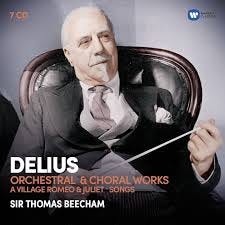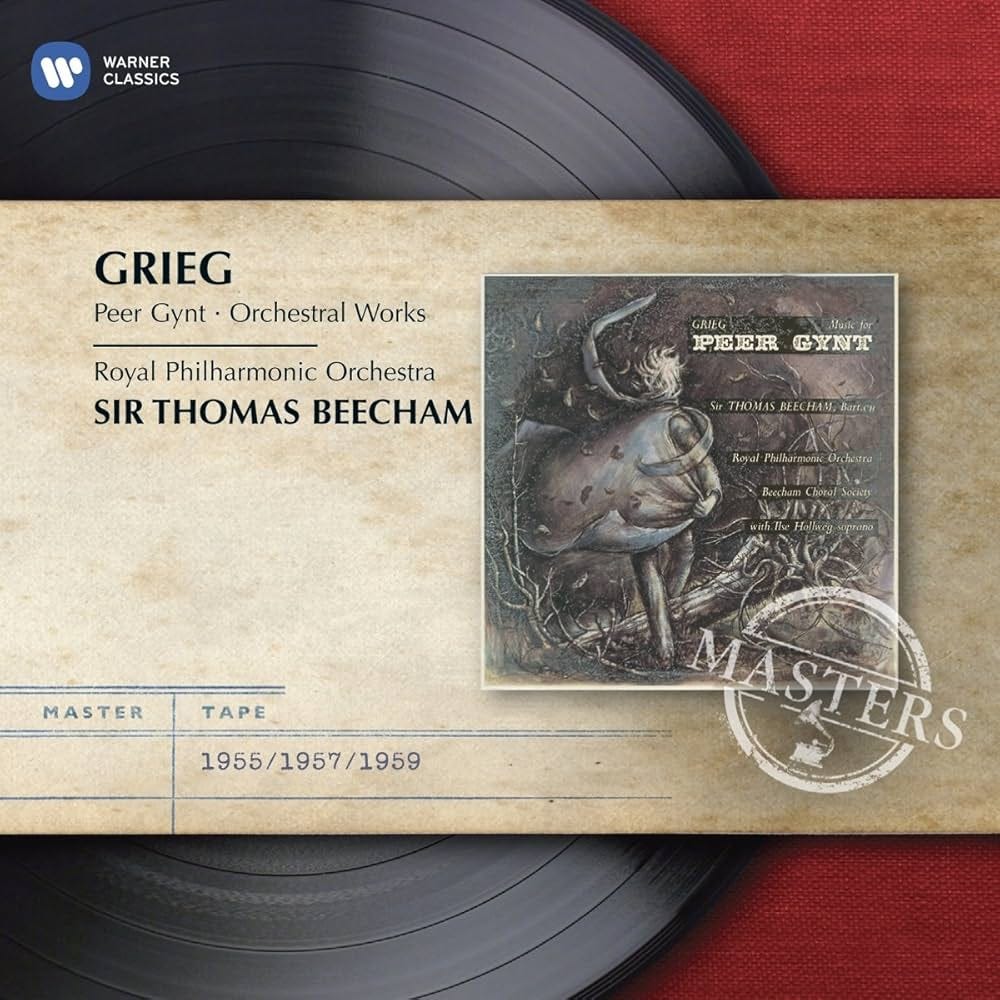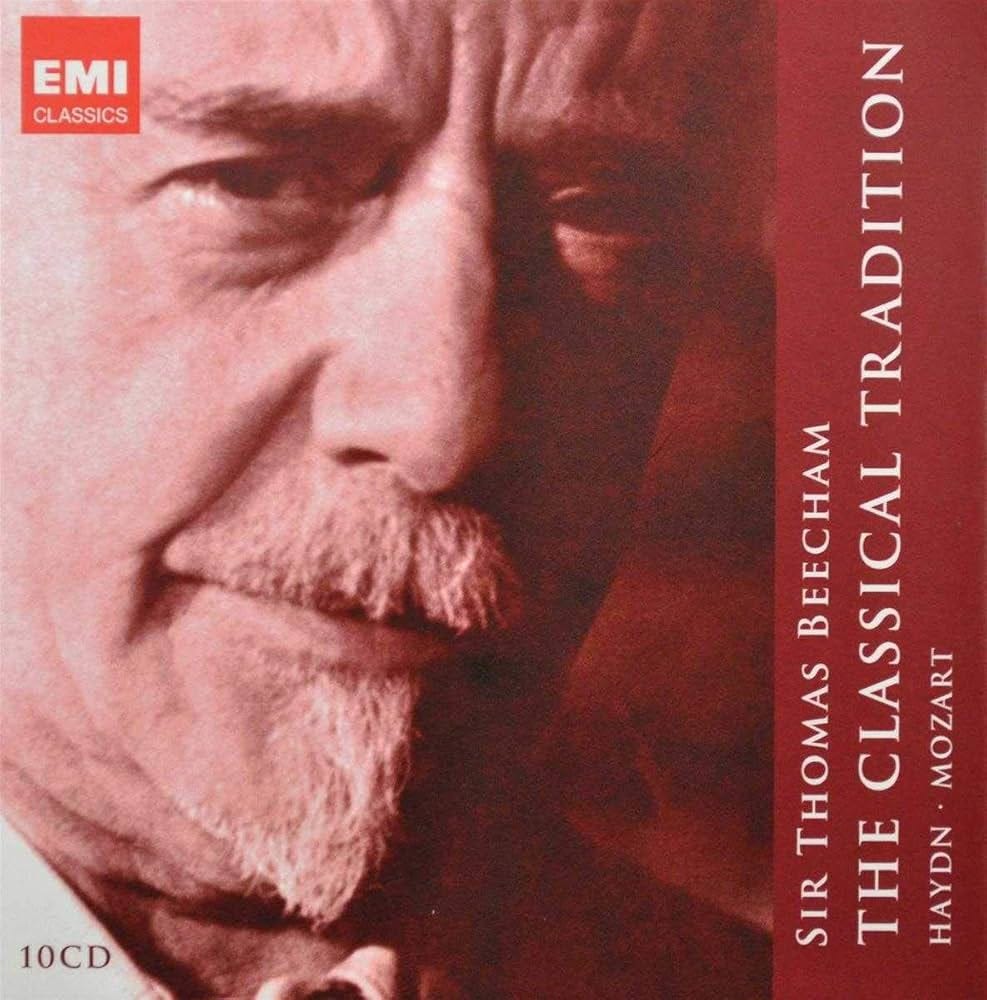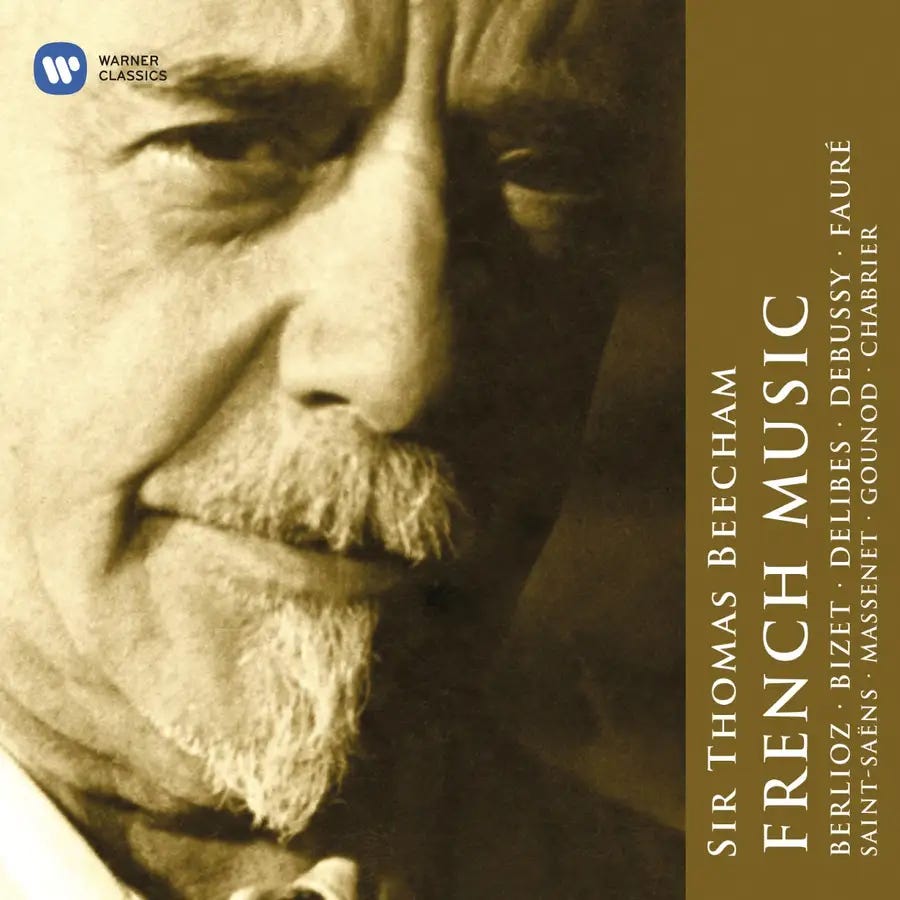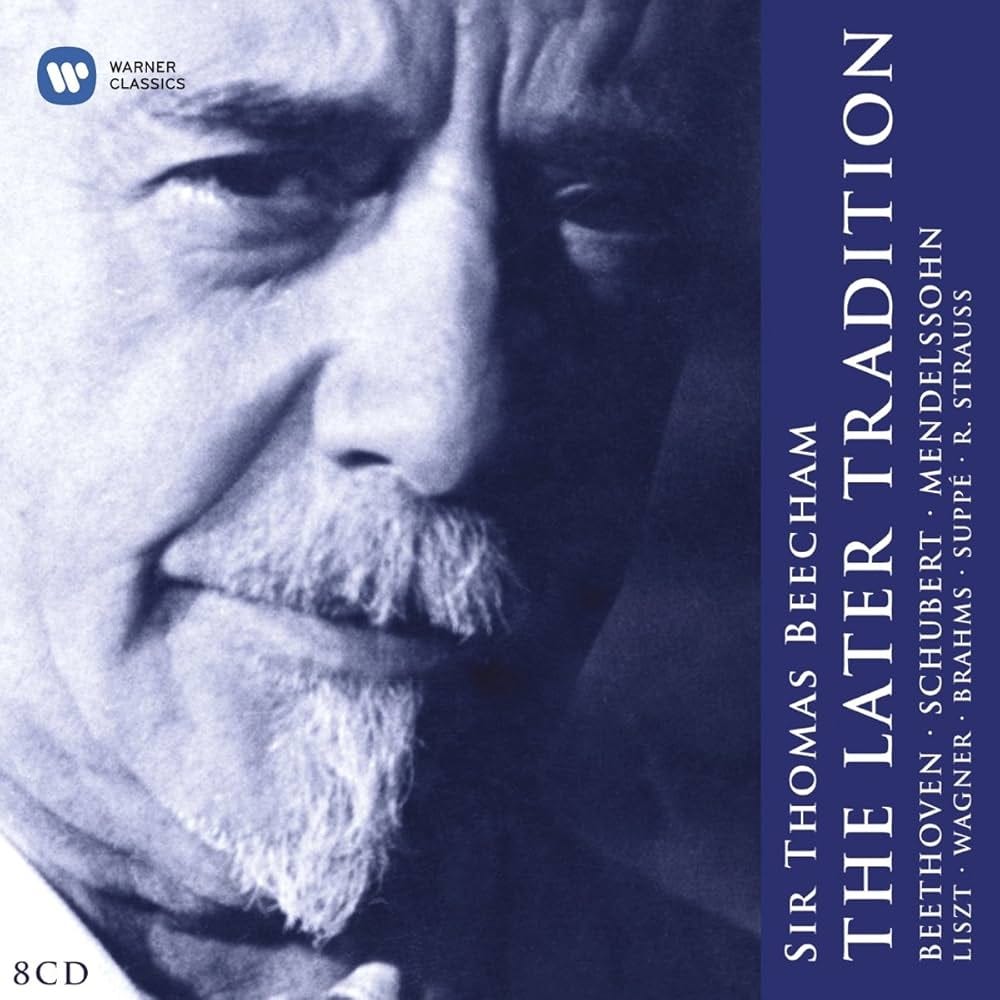The Top 75 Conductors Series
#7: Sir Thomas Beecham
________________
This is a reminder that The Top 75 Conductors is for paid subscribers, but I am making this post free for everyone on this occasion. If you like this kind of content, consider becoming a paid subscriber.
Welcome back to the Top 75 Conductors! We arrive at #7, and in this slot is the English conductor and 2nd Baronet Sir Thomas Beecham. Beecham may be best known for co-founding (with Malcolm Sargent) the London Philharmonic Orchestra in 1932, as well as for founding the Royal Philharmonic Orchestra in 1946. But he is also remembered for his fine performances and recordings of composers such as Mozart, Haydn, Schubert, Berlioz, Delius, Puccini, Rimsky-Korsakov, and Wagner.
Sir Thomas Beecham (1879 - 1961)
Thomas Beecham was born into a wealthy family in St. Helens, England, his father Joseph was the manufacturer of “Beecham’s Pills”, a popular laxative remedy in its day in Britain. Fortunately for Thomas, his father Joseph was also an avid lover of music and the arts. Thus, when Thomas expressed an interest in pursuing music as a career, his father encouraged him. since his father forbade Thomas from going to Germany to study music,
Since his father forbade Thomas from going to Germany to study music, Beecham received instruction in piano and composition in England. As it turned out, Beecham’s hands were too small to have a serious piano career and at some point he decided to become a conductor. As a conductor, Beecham was completely self-taught.
Beecham’s amateur debut as a conductor took place in 1899 with a random group of musicians that played in the local St. Helens area, but more famously Beecham stood in to conduct for an indisposed Hans Richter with The Hallé Orchestra at a concert to celebrate his own father’s elevation to the mayor of St. Helens. It is reported that soon after Beecham’s father Joseph committed his mother Josephine to a mental hospital for depression. Thomas and his sister Emily helped procure their mother’s release from the hospital, and since it was known that their father was keeping a mistress, they helped their mother receive a divorce from him, as well as getting him to pay alimony. Thomas was disinherited by his father for his actions in this episode, and he and his father were estranged for a long time.
Some sources say Beecham’s first professional outing as a conductor was conducting Balfe's The Bohemian Girl in 1902 in Clapham with the Imperial Grand Opera Company. It is known he also conducted the Queen’s Hall Orchestra in 1905, and then in 1906 he was invited to conduct the New Symphony Orchestra at a series of concerts at Bechstein Hall in London. Around this time, Beecham first encountered the music of Frederick Delius which made a very positive impression on him. Beecham began a lifetime love affair with the music of Delius, one of the composers he was most associated with over his career. Beecham parted ways with the New Symphony Orchestra in 1908 due to some disagreements over artistic control, and the fact that Beecham would program pieces that were not necessarily popular with the public, leading to lower revenue. The New Symphony Orchestra would go on to become the Royal Albert Hall Orchestra.
In 1909, Beecham founded the Beecham Symphony Orchestra, recruiting members from sources other than competing symphony orchestras, but primarily from music schools. During the first decade of the century, Beecham did not have access to his family’s wealth due to his estrangement from his father. However, they were reconciled in 1909 and after that point Beecham would turn his attention toward opera. In particular, Beecham would use his fortune to mount productions at Covent Garden and the Edwardian in London. Between 1910 and 1939, Beecham would transform the opera scene in London from one that strongly featured the voices to one that focused increasingly on the production, the conductor, and the orchestra. However, Beecham was still in the habit of programming obscure operas, and thus making money was still not his top priority. Only 4 of the 34 operas staged in 1910 made money, those were Richard Strauss’ Elektra and Salome, as well as Offenbach’s The Tales of Hoffman and Johann Strauss, jr. 's Die Fledermaus. While Beecham himself conducted many performances, he was assisted by Bruno Walter and Percy Pitt.
After Beecham and his orchestra began working with Sergei Diaghilev's Ballets Russes company in London and Berlin, and after they caused a commotion by brilliantly playing Stravinsky’s Petrushka in Berlin when the primary Ballets Russe conductor Pierre Monteux was indisposed, they garnered wonderful press reviews as being one of the finest orchestras around. The 1913 season saw the Beecham Symphony Orchestra present the British premiere of Strauss's Der Rosenkavalier at Covent Garden, and three Russian operas all starring the great Russian bass singer Feodor Chaliapin, and all new to Britain: Mussorgsky's Boris Godunov and Khovanshchina, and Rimsky-Korsakov's Ivan the Terrible. There were also 15 ballets, with leading dancers including Vaslav Nijinsky and Tamara Karsavina. The ballets included Debussy's Jeux and his controversially erotic L'après-midi d'un faune, and the British premiere of Stravinsky's The Rite of Spring, six weeks after its first performance in Paris. Beecham himself did not conduct much that season, but Monteux and others conducted the Beecham Symphony Orchestra. The following year, Beecham and his father presented Rimsky-Korsakov's The Maid of Pskov and Borodin's Prince Igor, with Chaliapin, and Stravinsky's The Nightingale.
World War I intervened, and although Beecham tried to keep London alive with a music scene, it was a shadow of what it had been before the war. When Beecham’s father Joseph died in 2016, Thomas was raised to knighthood and baronetcy. However, to further complicate matters, Joseph had died in the middle of a huge real estate transaction to purchase the Covent Garden estate from the Duke of Bedford. The courts decided to pass along the responsibility for the transaction and ownership to Thomas and his brother. This led to a period of financial crisis until enough money was raised to pay off their share of the £1.25 million purchase price still outstanding. The money could not be raised until 1923, and so for several years Beecham did not conduct at all in order to pay off the debt.
Once Beecham began conducting again in 1923, he did not have his own orchestra, and thus he guest conducted the London Symphony Orchestra and The Hallé for the better part of the rest of the decade. In 1931 the young conductor Malcolm Sargent approached Beecham with the proposal to create a new, permanent, salaried orchestra which would compete with the LSO. In 1932 the two decided to start from scratch with building an orchestra and the result was the London Philharmonic Orchestra, made up of primarily young musicians just out of music school, some musicians from regional orchestras, and 17 of the best musicians from the LSO. The LPO made their debut at Queen’s Hall in 1932 with Beecham conducting, and the audiences and the reviews were rapturous. There developed a symbiotic relationship between Beecham and the orchestra, and they not only collaborated on operas at Covent Garden, but also recorded over 300 records together.
At the same time, Beecham was essentially in artistic control of the opera at Covent Garden from the early 1930s. The 1933 and 1934 seasons were successful, but Beecham had a falling out with the managing director Geoffrey Toye over some artistic decisions. Beecham essentially forced Toye out, and Beecham then assumed sole control over the company from 1935 through 1939. In addition to producing the operas, Beecham himself also conducted many of the performances which included some of the biggest names in opera. The Second World War then broke out, which put the opera productions on hold. By the time Beecham conducted again at Covent Garden in 1951, he was no longer in control of the company.
Beecham would be in the center of controversy in 1936 when he took the LPO on a concert tour in Germany. It seems Germany may have been using Beecham’s visit as a propaganda tool to show how close he was to Hitler and the Nazis, with the Nazis even publishing doctored photographs showing Beecham in the company of Hitler. Beecham also abided by the Nazi request to not play Felix Mendelssohn’s Scottish Symphony since Mendelssohn was Jewish by birth, although the orchestra refused to play the German national anthem. While refusing further tour invitations to Germany, Beecham did fulfill existing contractual obligations with the Berlin State Opera, even recording what is now an historical version of Mozart’s The Magic Flute in 1937 and 1938 in Berlin.
Due to the war, but also due to some health concerns, Beecham curtailed his conducting work in 1940 and traveled to Australia and then to the United States. In addition to serving as the music director for the Seattle Symphony, in 1942 he also joined the Metropolitan Opera in New York as joint conductor with Bruno Walter. Beecham, being an avid Francophile, mostly led performances of French opera repertoire such as Carmen, Louise, Manon, Faust, Mignon and The Tales of Hoffmann. Meanwhile, Beecham also guest conducted at least 18 other American orchestras.
Beecham returned to England in 1944, and while the LPO now wanted to hire him as their full time artistic director, Beecham did not want to be controlled by the orchestra. When producer Walter Legge formed the Philharmonia Orchestra in 1945, Beecham conducted the inaugural concert but once again refused to be under the control of anyone else. He was quoted as saying, "I emphatically refuse to be wagged by any orchestra...I am going to found one more great orchestra to round off my career.” Beecham did just that, founding the Royal Philharmonic Orchestra in 1946 in conjunction with an agreement with the Royal Philharmonic Society, as well as getting the Glyndebourne Festival to agree to have the RPO be the resident orchestra for its summer opera productions. The RPO recruited members in a similar way to the LPO had done before.
Beecham was unceremoniously ousted from the Hallé Concerts Society in 1944 by John Barbirolli who vowed to never “let that man near my orchestra”. You see, while Beecham was beloved in some corners, he was reviled in others. Beecham remained beloved in Liverpool, and was always given the first pick of dates to conduct. Beecham was never one to let his opinions go unspoken, and this earned him some detractors. He could be abrasive in person, and some did not forgive him for representing a perceived elitist view of music and society. Furthermore, Beecham could be difficult to work with and the record shows he treated some with derision and scorn. Sir Adrian Boult considered Beecham vulgar, and Barbirolli did not care for him either.
On the other hand, he had a great wit and could be genuinely charming. On the whole, musicians generally respected him. Some of the more famous (or infamous) quotes attributed to Beecham include:
“Madam, you have between your legs an instrument capable of giving pleasure to thousands and all you can do is scratch it.”
“There are two golden rules for an orchestra: start together and finish together. The public doesn't give a damn what goes on in between.”
“It is quite untrue that British people don't appreciate music. They may not understand it but they absolutely love the noise it makes.”
A soprano in Massenet's Don Quixote complained that she had missed her entry in the aria, "because Mr. Challiapin always dies too soon." "Madam, you must be profoundly in error," said Sir Thomas, "No operatic star has yet died half soon enough for me."
“Brass bands are all very well in their place - outdoors and several miles away.”
“A musicologist is a man who can read music but cannot hear it.”
Beecham was known to make sexist comments about women, as well as jokes about homosexuals. This was not so uncommon in his era of course, though it may influence our overall impression of the man. Beecham could be demanding and uncompromising, qualities that are not rare among conductors.
In 1950 Beecham took the RPO on a tour through the United States, Canada, and South Africa during which time he conducted 49 concerts in a strenuous schedule. He made a relatively short-lived return to Covent Garden to conduct opera, but by then the company was run as a tight ship and Beecham’s demands were often unrealistic and unwelcome. Between 1951 and 1960, Beecham conducted 92 concerts at the Royal Festival Hall, typically leading music by his favorite composers including Mozart, Bizet, Delius, Haydn, Schubert, Tchaikovsky, Strauss, and Sibelius. In his final years Beecham would conduct opera in Argentina and then once again return to the United States and Canada to guest conduct. He died in London in 1961.
Beecham was certainly no “authenticist” in his approach to conducting. He was not above editing scores to suit his taste, or his perception of what would please audiences. He largely ignored pedagogues and musical scholars, he loathed the use of the harpsichord, and would phrase even Baroque music with romantic flair. Beecham gave the music of Handel and Haydn great exposure, and he also brought to the public some lesser known works which were unknown or forgotten. But for Beecham, Mozart was the most exalted of composers, and in particular he brought nearly all of Mozart’s operas to public performance.
Beecham was more neutral on the music of Beethoven and Wagner, at times making disparaging comments about some of their works, but also conducting the Beethoven symphonies often, as well as almost all of Wagner’s operas. With other Beethoven, he was more selective. Beecham was also quite selective about the Bach and Brahms that he would conduct, as they were perhaps not composers he felt like he enjoyed or connected with as much. Richard Strauss, however, was another matter as Beecham vigorously championed Strauss’ music and Strauss became very fond of Beecham.
Beecham did more for the life and growth of French music than perhaps any other conductor. Berlioz was a particular favorite of Beecham’s, and in addition he would often program Debussy, Charpentier, Delibes, Bizet, Saint-Saëns, Lalo, and Offenbach. Some of Beecham’s most beloved works were by French composers. Beecham did not avoid the Italian composers Verdi and Puccini either, regularly conducting many of Verdi’s best operas, as well as Puccini’s Tosca, La Boheme, and Turandot.
When it came to music from his homeland’s composers, Beecham was lukewarm at best. However, the music of Delius highly appealed to him and Beecham would go on to advocate very strongly for Delius’ music through performances and recordings which have never really been surpassed.
As a generalization, one might say Beecham was fond of, and more successful with, composers that emphasized a lyrical or singing line rather than those that promoted drama and power. Reviews of performances and commentaries from listeners raved about how thrilling and glorious it was to attend live concerts with Beecham conducting. Even though Beecham recorded prodigiously in the studio, some pointed out how his recordings never fully captured the same electricity present in his live concerts.
Beecham Recommended Recordings
The first recommended recording by Sir Thomas Beecham is one of the finest opera recordings ever made, the 1956 La Bohème by Giacomo Puccini with Victoria de los Angeles and Jussi Björling, and accompanied by the RCA Victor Orchestra and Chorus. The recording has an interesting history. The Jussi Bjorling Society explains on their site:
“The spring of 1956 brought one of those happy coincidences when every detail fell into place. It was suggested to Sir Thomas Beecham that he record La Bohème with Victoria de los Angeles as Mimì. He agreed, provided a first-class cast could be assembled. It was actually Beecham’s manager, Andrew Schulhof, who appreciated that Victoria de los Angeles, Jussi Björling and Beecham himself would all be available in New York in the spring of 1956: his suggestion to EMI and its then-associate American company, RCA, that this opportunity should be taken to record the opera, proved an inspiration. Besides de los Angeles and Björling, also the American singers Robert Merrill, baritone, Giorgio Tozzi, bass and John Reardon, baritone, were to take part.
Usually plans are made several years in advance, so that necessary stars can be brought together in one place at more or less the same time, with dates necessarily overlapping for recording the ensembles. For once, the powers-that-be moved with unprecedented alacrity, and cast, chorus and orchestra were brought together in record time. The recording sessions at the Manhattan Center began on March 16 and 17, but then were completed in an intensive rush of activity between March 30 and April 6 with only one day (April 4) left free of sessions. That is what makes Beecham’s recording of Puccini’s La Bohème – a classic of the record catalogue from the moment it was issued – even more of a miracle that it might appear on the surface.
In the middle of the recording sessions, Jussi’s back pain returned. Sir Thomas Beecham remarked that to the best of his knowledge the spine wasn’t the organ a tenor used for his singing, but his calculated sarcasm notwithstanding, the session had to be interrupted. Bob Merrill sent Jussi off in a taxi to his own chiropractor. After the treatment, similar to the one Jussi had received in Sweden nine years earlier, he rode back to the studio and continued the recording.
There was not a prior performance onstage. Sir Thomas was at his crotchety best. In the third act, de los Angeles didn’t want to cough. It would ruin her vocal line, she claimed. After the first take, when she had not coughed, Sir Thomas said, “Young lady, now we’re going to do that again, and if you don’t cough, we will later, after the tape is put together, hire a professional cougher, and you may not be able to hear a note you sing!” They did another take – and she coughed.
Legend has it that Victoria de los Angeles stopped off on her way to the airport, to make her final contribution to a recording that tingles with life and warmth from beginning to end.
Beecham had known Puccini, and they had discussed La Bohème specifically in 1920 before Puccini’s death. Beecham certainly had a claim to how Puccini wanted the opera performed, as did Toscanini.
I love this recording, and will return to it often.
Beecham led the Royal Philharmonic Orchestra in a recording of Nikolai Rimsky-Korsakov’s Scheherazade made in 1958 by EMI (now Warner). A classic account of this kaleidoscopic masterpiece, for many listeners over the years this has been their preferred version. Beecham draws beautiful playing from his orchestra, and the sound is exceptional for its time. The piece plays to Beecham’s strengths as a conductor, bringing out the inherent lyricism and exotic melodies in the piece to a greater extent than most. Even Karajan initially refused to record Scheherazade because he didn’t feel Beecham’s recording could be improved upon.
Beecham’s 1959 Handel’s Messiah with the Royal Philharmonic Orchestra & Chorus on RCA has always been a blockbuster recording, and it still holds up well for those that want their Messiah with a big band, thicker textures, and slower, semi-romantic phrasing. This is most definitely not a historically informed performance and don’t expect to hear any harpsichord, but it is enjoyable nonetheless on its own terms. Beecham clearly has great affection for Handel’s score. Soloists are soprano Jennifer Vyvyan, mezzo Monica Sinclair, tenor Jon Vickers, and bass Giorgio Tozzi. This is Handel in the grand manner, and the bigger numbers such For Unto Us a Child is Born and Hallelujah proportionally huge and unsubtle, though certainly rousing. What Beecham does so well on both this as well as the very fine 1947 version is maintain a discernible singing line which allows the text to breathe and be heard in detail.
Speaking of the 1947 version on the Allegro label, the sound is not quite so big, but Beecham is actually less indulgent. Tempos are closer to mainstream and phrasing doesn’t slow to crawl, which for me leads to a more satisfying overall experience. In 1947 he was also joined by the Royal Philharmonic Orchestra and the Luton Choral Society and Special Choir with soloists soprano Elsie Suddaby, contralto Marjorie Thomas, tenor Heddle Nash, and basses Trevor Antony and Herbert Dawson. Nash is certainly more subtle and less operatic than Vickers above, though Vickers is impressive. I also prefer Suddaby to Vyvyan in the soprano part. The Luton chorus is more incisive too, though less well recorded. The Hallelujah chorus is far preferable here to 1959 in my estimation.
As mentioned previously, the Delius recordings from Beecham are eminently recommendable, but I especially recommend the 7-disc Delius set on Warner which includes virtually all of Beecham’s RPO versions of Delius’ music. Together these works give us a superb sense of Delius’ sound world and are played with utter elegance and grace by the RPO under Beecham. To this collection I would also add the longer tone poem Appalachia: Variations on an Old Slave Song recorded in the 1930s with the London Philharmonic Orchestra, now on the Naxos label. While Beecham recorded Appalachia again later with the RPO on the Warner set, the earlier version is more interesting.
Beecham’s 1957 version of Edvard Grieg’s Incidental Music from Peer Gynt on Warner, another of Warner’s “Great Recordings of the Century”. Beecham and the Royal Philharmonic Orchestra and Beecham Choral Society are in sparkling form. Beecham brings out all the color and majesty of this music, and while there are certainly more modern recordings which sound more spectacular, I still consider this performance one of the finest recordings of the incidental music. I don’t know why the decision was made to sing the vocal and choral parts in German rather than Norwegian, but that is a small quibble.
Recommended Beecham Set
The Beecham set put together by EMI/Warner (issued in 2010) contains the best of the rest of Beecham’s recorded output. The series is highly recommended if you like Beecham. It includes:
Sir Thomas Beecham: English Music contains the best of Beecham’s Delius recordings, as well as a few other English composers such as German, Bantock, and Bax.
Sir Thomas Beecham: The Classical Tradition contains Beecham’s wonderful renditions of Haydn’s “London” Symphonies (Symphonies 93-104) and The Seasons. The other part of the set is devoted to Beecham’s Mozart, in particular Symphonies 29, 31, 34-36, 38-41, Don Giovanni and Le Nozze di Figaro Overtures, as well as Violin Concerto no. 3 and Divertimenti K131 and K287.
Sir Thomas Beecham: French Music has some of Beecham’s finest recordings including his very good 1959 Berlioz Symphonie Fantastique and Berlioz Overtures with the French National Radio Orchestra. The L’Arlesienne Suites Nos. 1 & 2 and Symphony no. 1 (a Beecham favorite) by Georges Bizet are also included. Some other delightful music by Delibes, Debussy, Saint-Saëns, Gounod, Massenet, Chabrier, Fauré, Franck, and Lalo is also included.
Sir Thomas Beecham: The Later Tradition contains music by Beethoven, Brahms, Liszt, Mendelssohn, Wagner, Schubert, and Richard Strauss. This is valuable for Beecham’s terrific recordings of Schubert’s Symphonies 3, 5, and 6 as well as his superb Strauss’ Ein Heldenleben and Don Quixote.
Beecham Honorable Mention Recordings
Mozart The Magic Flute (Naxos 1937-38)
Sibelius Symphony no. 2 and Orchestral Works (Biddulph 1946-47)
Mozart The Abduction from the Seraglio (Warner 1956)
Bizet Carmen (Warner 1960)
Thank you for joining me on this admittedly too long profile of English conductor Sir Thomas Beecham. Join me next time when we profile Dutch conductor Eduard van Beinum. See you then!
______________
Notes:
Atkins, Harold; Archie Newman (1978). Beecham Stories. London: Robson Books. ISBN 0-86051-044-1.
Beecham, Thomas (1959) [1943]. A Mingled Chime. London: Hutchinson. OCLC 470511334.
Canarina, John (2003). Pierre Monteux, Maître. Pompton Plains and Cambridge: Amadeus Press. ISBN 1-57467-082-4.
Crichton, Ronald, and John Lucas. "Beecham, Sir Thomas", Grove Music Online, Oxford Music Online. Retrieved 13 March 2011 (subscription required).
Geissmar, Berta (1944). The Baton and the Jackboot. London: Hamish Hamilton.
Jefferson, Alan (1979). Sir Thomas Beecham: A Centenary Tribute. London: Macdonald and Jane's. ISBN 0-354-04205-X.
Kennedy, Michael (1971). Barbirolli, Conductor Laureate: The Authorised Biography. London: MacGibbon and Key. ISBN 0-261-63336-8.
Langford, Samuel. "The Hallé Concerts: Sir Thomas Beecham's Return", The Manchester Guardian, 16 March 1923, p.18.
Lucas, John (2008). Thomas Beecham: An Obsession with Music. Woodbridge: Boydell Press. ISBN 978-1-84383-402-1.
Morrison, Richard (2004). Orchestra – The LSO: A Century of Triumph and Turbulence. London: Faber and Faber. ISBN 0-571-21584-X.
Procter-Gregg, Humphrey, ed. (1976). Beecham Remembered. London: Duckworth. ISBN 0-7156-1117-8.
Reid, Charles (1961). Thomas Beecham: An Independent Biography. London: Victor Gollancz. OCLC 500565141.
Russell, Thomas (1945). Philharmonic Decade. London: Hutchinson. OCLC 504109856.
Sheppard, F. H. W. (ed). "The Bedford Estate: The Sale of the Estate" Archived 29 June 2011 at the Wayback Machine, Survey of London, Volume 36: Covent Garden (1970), pp. 48–52. Retrieved 14 March 2011.
Stevenson, Joseph. Sir Thomas Beecham. The All Music Guide to Classical Music. Backbeat Books. 2005. Pg. 100.
Wigmore, Richard. "Haydn Symphonies", Gramophone, September 1993, p. 53.
https://www.azquotes.com/author/1128-Thomas_Beecham
https://en.wikipedia.org/wiki/Thomas_Beecham?scrlybrkr=40ad99ec
